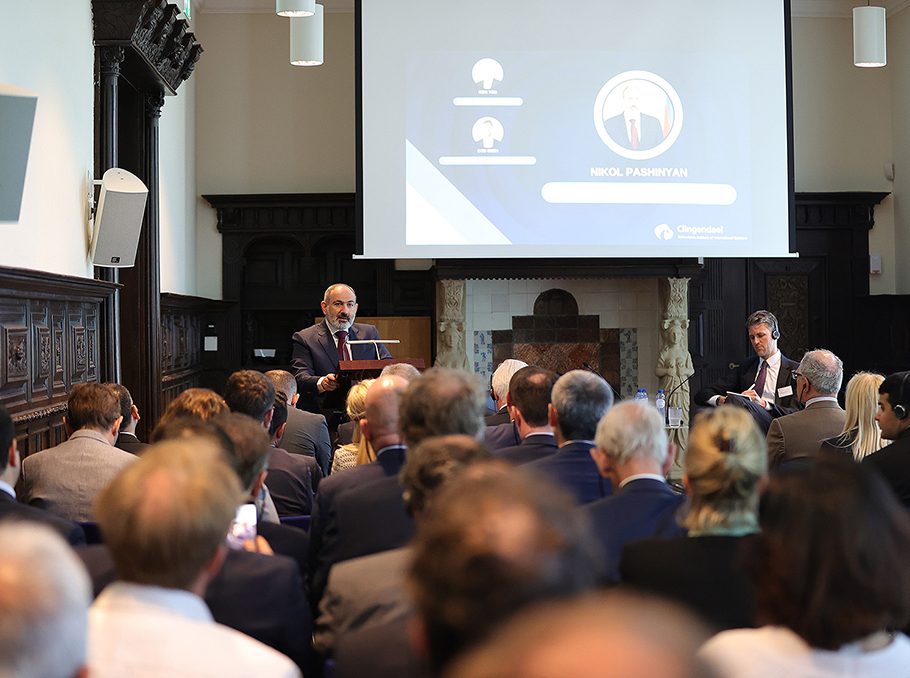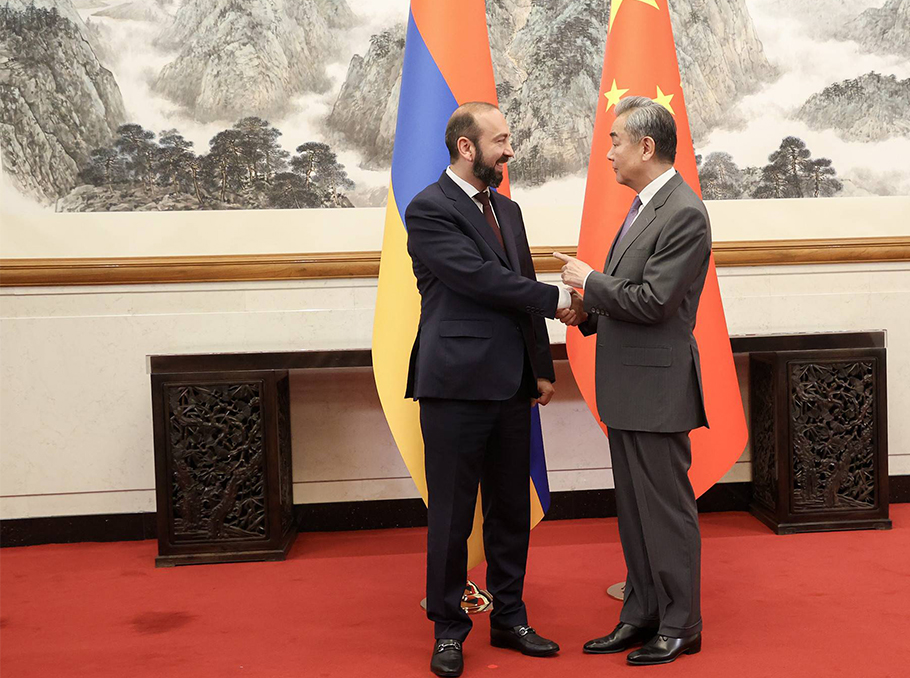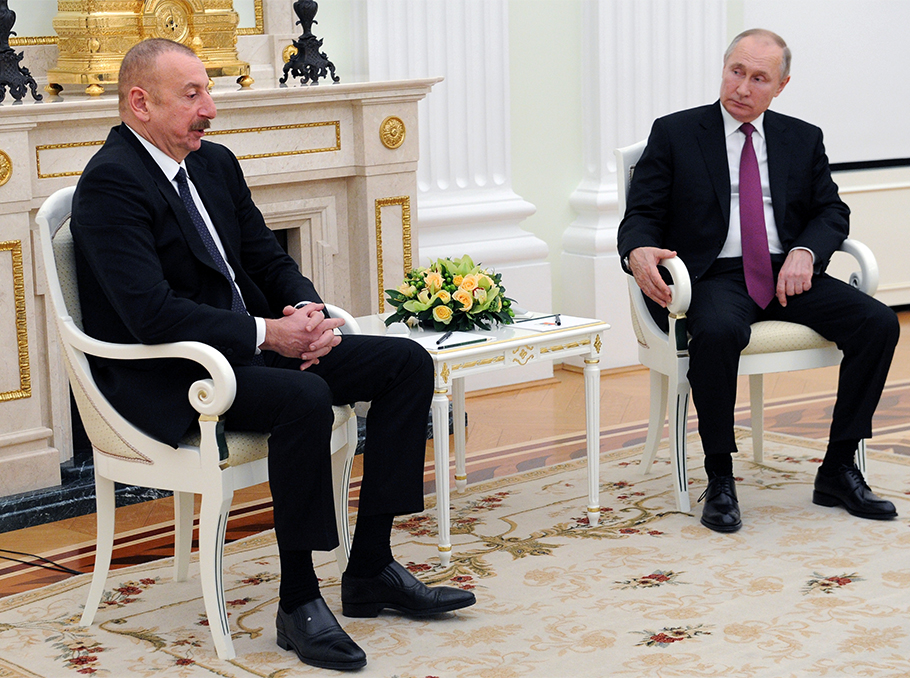Yerevan /Mediamax/. Prime Minister of Armenia Nikol Pashinyan delivered remarks at the Netherlands Institute of International Relations in Hague on May 11.
Here are extracts relating to the 2020 war and post-war situation:
Democracy and security, causes of the war
There is an opinion that it was democracy in Armenia that led to the 2020 war. The main question that hangs in the atmosphere of Armenia today is to what extent democracy is able to ensure the security of the country.
The 2020 Karabakh war has nothing to do with Armenia being democratic. The situation here is more serious. It is my deep belief and conviction that the 2020 war was another sign of upcoming global geopolitical and world order changes.
In fact, the reason of the war was the change in the balance of global and regional forces that was taking place for many years, and against this background, the negotiation policy carried out by Azerbaijan – give us what we want, otherwise we would get it through war. In this sense, it is obvious and unequivocal that war was inevitable.
Azerbaijan’s policy – Karabakh without Armenians
After the war, Azerbaijan insists that the Nagorno-Karabakh conflict is already resolved, and this is not just a political statement. If to formulate that policy in one word, it is the following: Karabakh without Armenians.
Just recently, such a strange statement was made by the Ministry of Culture of Azerbaijan: they stated that a working group has been set up, as they say “to remove the fake recordings, inscriptions on the churches considered to be Armenian.” And a few months prior to this, the president of Azerbaijan, visiting an area under the control of Azerbaijan, where there is an ancient Armenian church, literally stated the following: “The protocols are false and that forgery must be eliminated.”
The Nagorno-Karabakh issue is a matter of right
Our perception is completely different: the Nagorno-Karabakh issue is not a land issue at all, as Azerbaijan was trying to present. The Nagorno-Karabakh issue is a matter of right, and we, our policy and our message to the international community, is that we must work to protect the rights of the Armenians of Nagorno-Karabakh. And it is in this context that we, despite all this negativity, have adopted a peace agenda. This was not easy in a situation where there was a war, when we had casualties. We have said that regardless of everything, it is the commitment and mandate of our government to do everything to reach peace in our region, in Armenia-Azerbaijan relations, in the context of the Nagorno-Karabakh conflict to do everything for peace, and not just to do everything, but to achieve peace, identify the problem and solve it.
We listen to the criticism
Many people, many compatriots think that by talking about the peace agenda we are betraying our national identity, we are betraying the interests of our country, we are betraying the Armenians of Nagorno-Karabakh, Nagorno-Karabakh, we are leaving them defenseless. But our belief is the opposite. We listen to that criticism, we analyze that criticism, we try to understand that criticism. We even partly and generally understand it, but the biggest task of a politician and a political team and a government elected by the people is to follow the hard path, because the easy ways do not lead to good results. And the result we expect is the following: an era of peaceful development for our country and our region. For this we need to successfully open regional communications so that our railways and roads with Azerbaijan work and be open.
Recent developments
In February-March, Azerbaijan presented its views on the normalization of Armenia-Azerbaijan relations, stressing five main points. They refer to mutual recognition of each other’s territorial integrity, demarcation of borders, opening of communications, absence of territorial claims from each other. Considering those proposals, we saw that there was nothing unacceptable for us, but we registered that these points do not address the whole agenda of our relations. And we supplemented the agenda of these relations, which includes the issue of the security rights of the Armenians of Nagorno Karabakh and the issue of the final status of Nagorno Karabakh.
During the April 6 meeting brokered by the President of the European Council Charles Michel, we discussed this issue with the president of Azerbaijan, and I said that there is nothing unacceptable in the points they proposed to us and if the Azerbaijani side agrees to combine our two ideas and start negotiations on that basis, we are ready for that. After I returned from Brussels, I said that we had reached an agreement, in fact, the Azerbaijani side also stated about it. But lately, statements are voiced from Azerbaijan with an attempt to create the impression that only Azerbaijan’s proposals will be on the table. This at least does not go in line with the agreements we reached in Brussels.
In near future the meeting of both our representatives on the demarcation and delimitation issues and the meeting of the foreign affairs ministers are expected.



























Comments
Dear visitors, You can place your opinion on the material using your Facebook account. Please, be polite and follow our simple rules: you are not allowed to make off - topic comments, place advertisements, use abusive and filthy language. The editorial staff reserves the right to moderate and delete comments in case of breach of the rules.